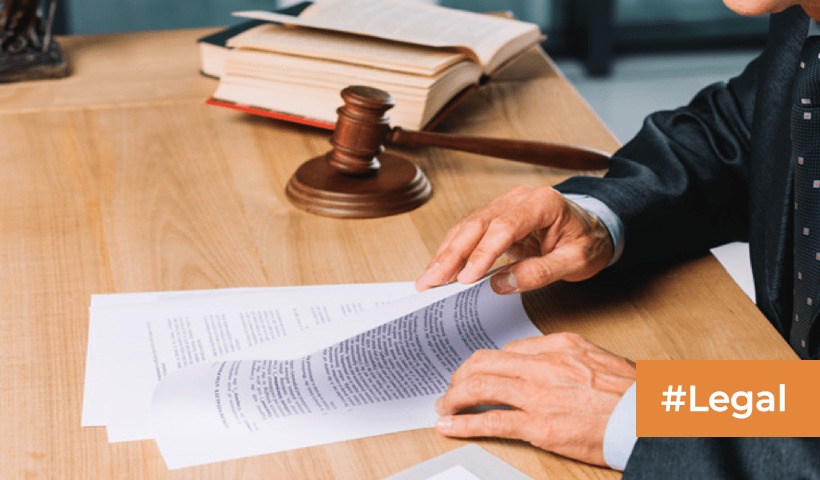What is an Encumbrance Certificate? EC Meaning and Full Form in Property Purchases
As a land buyer, you need to be aware of encumbrance certification (EC) in order to make an informed purchase decision about a piece of land. You may find out about any loans, fees, and other liabilities associated with a plot of property from the certification.
What is an Encumbrance Certificate?
An encumbrance certificate is an essential record that attests to the ownership and legal status of real estate. It basically confirms that a certain property is free of all debts, including mortgages, liens, and outstanding court cases, as well as any other financial or legal obligations. This certificate is essential to real estate transactions and is frequently needed when purchasing, selling, or taking out a mortgage on real estate.
Legal Significance of Encumbrance Certificate (EC) in Property?
A complete ownership of the property in issue is ensured by an encumbrance certificate, also known as a bhar-mukt praman in Hindi. It is crucial for those who wish to purchase or sell real estate or apply for a loan secured by it. It not only demonstrates a property owner’s legitimate ownership but also qualifies it for financial advances against it from a lending institution.
An EC certificate allows you to look up precise property information, such as the number of times the residence has changed hands and any associated fees. In the event that the property has free title—that is, no one else has a right to lawfully claim it—this establishes the applicant as the owner. The property is qualified for a fresh advance if it hasn’t been committed to another lender, provided that it meets further requirements.
How to get EC (Encumbrance Certificate) Online?
- Check out the Government Website: Visit your state’s official property registration website.
- Sign up or Sign in: Make an account or use your login information to get in.
- Complete Form 22: Give the buyer, seller, and property information. Also provide the time frame.
- Add Documents: Upload the required files, such as identity and property records.
- Cover the Cost: To process the EC, finish the online payment. This amount is paid as a processing fee to obtain the necessary information in the form of an EC.
- Validation and Shipping: After reviewing your papers, the sub-registrar’s office provides Form 16 (if no encumbrances are present) or Form 15 (if they are).
- Get the EC: When it’s ready, download it, then save a copy for your files.
How to get EC (Encumbrance Certificate) Offline?
Step 1: Find the jurisdiction’s sub-registrar office for the disputed territory.
Step 2: Go to the sub-registrar office and complete the EC application.
Step 3: At the counter in the office, pay the application cost.
Step 4: After receiving the application, the office will acknowledge it and provide you a copy. Track your application using the reference number included in this page.
Documents required for encumbrance certificate
An encumbrance certificate is a legally required document used in real estate transactions. It guarantees entire ownership of a property, free of any legal responsibilities. The following are the documents needed for the encumbrance certificate:
- Registration document for real estate
- Details of the property’s possession deed
- Deed of title
- Gift, sale, or division deeds, if they have already been finalized
- A copy of the authority reference letter
- Address proof
- A properly completed application using Form 22
How to check Encumbrance Certificates Application Status
A step-by-step method for verifying the status of an encumbrance certificate online. Using the same official website, you may monitor the status of encumbrance certificates.
1. Go to the Encumbrance Certificates area of the site.
2. Choose EC Status under Encumbrance Certificate.
3. After entering the captcha code, select “Check Status.”
Uses of Encumbrance Certificate
Validating a property’s ownership and title is the main function of an encumbrance certificate. This paper is essential in a number of situations, such as:
Property transactions: To guarantee that the property they plan to buy is free of any legal encumbrances, buyers frequently need an encumbrance certificate.
Loan approvals: In order to determine if a property qualifies as collateral, financial institutions may ask for an encumbrance certificate during the loan approval process.
Lawsuits: An encumbrance certificate might give information on ownership and title status in the event of a lawsuit or other legal issue regarding the property
Difference between Encumbrance Certificate and Property Registration
| Encumbrance Certificate | Non-Encumbrance Certificate |
| The different registered encumbrances are documented in government documents. | When there are no registered encumbrances against a property, it is granted. |
| It takes between 15 and 30 days to obtain an encumbrance certificate. | It takes 20 to 30 days to obtain a non-encumbrance certificate. |
| Form 15 is used to grant EC. | Form 16 is used to grant EC. |
Validity Period of Encumbrance Certificate
An essential document that establishes the owner’s title to a piece of property and confirms that it is free from debt or legal issues is an EC. An encumbrance certificate can normally be used for up to 30 years.
Challenges in Obtaining Encumbrance Certificate
The process for acquiring an encumbrance certificate differs between States, thus the time it takes to receive one might also vary. Applying for an EC online as opposed to offline might result in a faster certificate delivery. Online applications usually get handled within two or three business days. It will take six to thirty working days to acquire EC, however, if you apply offline.
Encumbrance Certificate Impact on Property Transactions
Clear encumbrance certificates have a big influence on real estate transactions, both for the seller and the buyer. It reduces the possibility of future challenges and gives purchasers peace of mind regarding the property’s legitimacy. By displaying the property’s clear title, sellers can utilize the certificate to draw in prospective purchasers.
Importance of Encumbrance Certificate in Loan Processing
An official document known as an encumbrance certificate lists all of the monetary and legal transactions pertaining to a piece of real estate throughout a given time frame. It shows that the property is free and clear of any liens or unpaid debts at the time of sale and provides evidence of ownership and free title. The EC is essentially a statement that the property in issue is free and clear of liens, which is why it’s an essential document to have when applying for a mortgage.
Signs of a Clear Encumbrance Certificate
A clear title can be determined by looking at specific markers on an encumbrance certificate, such as:
- Nothing encumbering or charging the property
- Uniformity in title documentation No ongoing legal proceedings or disagreements over the asset
- On the other hand, warning signs like many transactions, unsolved disagreements, or unpaid bills cause suspicion and call for more research.
Encumbrance Certificate vs. Title Deed
A title deed assists purchasers in determining if the seller of the house is the real owner and has the authority to sell it, whereas an encumbrance certificate indicates outstanding debts, obligations, or disputes against a property.
Benefits of Encumbrance Certificate (EC)
An encumbrance certificate is a legal document that certifies the residence is free of any conflicts or liabilities.The following are EC’s advantages for purchasers, vendors, and existing owners.
- Purchaser: An EC may assist in assessing the potential property for any financial obligations. You can use a house loan certificate that the seller provides as an extra check.
- Seller: A fast sale of the property might be facilitated by an EC with no outstanding debts and clean transactions. A well-kept house makes it easier to draw prospective purchasers. The other document that the seller needs to give the buyer is a possession certificate related to a house loan.
- Present proprietor: When requesting a loan against real estate, the EC may be utilized to confirm collateral and offers robust validation for property ownership.
FAQs
What is the meaning of an Encumbrance Certificate?
A property certificate, often known as an EC for property certificate, is an essential legal document that certifies the ownership and free title of the property and specifies if it is mortgaged or has any outstanding debts.
What is EC in Land Records?
In real estate transactions, an Encumbrance Certificate (EC) is extremely important. It serves as verifiable evidence of property ownership, supporting both the financial and legal claims. The EC is an essential document for anybody looking to apply for a home loan, purchase or sell a house, or take out a loan against one.
How long will it take to get an Encumbrance Certificate (EC)?
In 15 to 30 days, if you apply for an EC in person at a Sub-Registrar’s Office, you will receive the certificate. Nonetheless, you will receive your EC more quickly if you apply online.
Why is it important to have an Encumbrance Certificate?
It serves as verifiable evidence of property ownership, supporting both the financial and legal claims. The EC is an essential document for anybody looking to apply for a home loan, purchase or sell a house, or take out a loan against one.
How to download an Encumbrance Statement for your property?
-Go to the Department of Registration and Stamps’ official website.
-Go to the section labeled “Encumbrance Certificate”
-Enter the property’s data and make the necessary payments.
-The EC will be generated and verified by the system.
-Utilize the webpage to download the EC.
Disclaimer: The views expressed above are for informational purposes only based on industry reports and related news stories. PropertyPistol does not guarantee the accuracy, completeness, or reliability of the information and shall not be held responsible for any action taken based on the published information.




